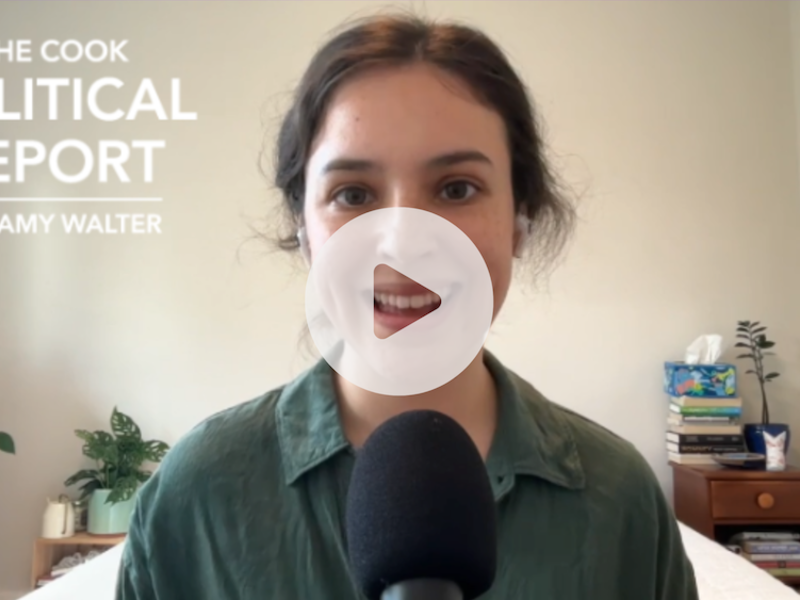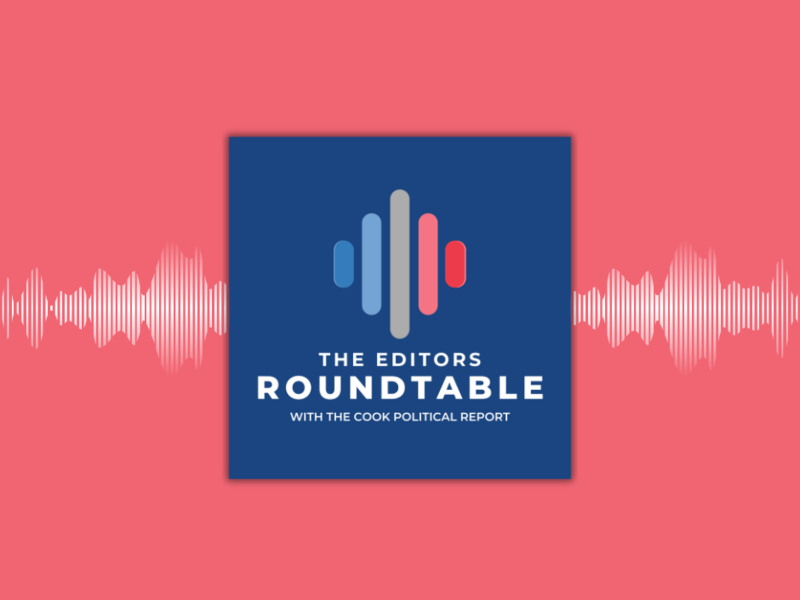
This week we learned that Donald Trump’s campaign chairman is going to jail, and his one-time attorney and ‘fixer’ admitted that the president directed him to pay hush money to two mistresses in a scheme that violates campaign law. You’d think that Democrats would be spiking the football. Or, gloating at the very least.
Instead, Democrats were quick to tamp down talk about turning 2018 into a referendum on Trump’s impeachment, with House Minority Leader Nancy Pelosi saying it’s "not a priority." Instead, Pelosi told the AP in a recent interview that "she prefers for Democrats, if they win the House in November, to conduct oversight and ensure Special Counsel Robert Mueller can finish his work."
In the Senate, there was an early flurry of support among liberal Democrats for using the events of the week as an excuse to delay the upcoming hearing for Supreme Court nominee Brett Kavanaugh. "The Supreme Court will be forever stained and tainted if Brett Kavanaugh is confirmed after his nomination by a [President] that has been implicated in the most serious criminal wrongdoing affecting the outcome of his own election,” said Connecticut Senator Richard Blumenthal.
Yet, this effort hasn’t been getting much traction. And, moderate and red state Democrats have shown little appetite to pick this fight. West Virginia Democrat Joe Manchin was quoted in a Fox News story saying of the strategy: "That’s not right... we have a job to do."
There’s also the question of whether pushing a 'corruption' narrative is the right strategy for Democrats. An early August Quinnipiac poll suggests that Democrats should lean more into health care, than corruption. For example, Democrats led by just 5 points (39 to 34 percent), on the question of "which political party do you think can do a better job of handling corruption in government?"
On the question of which party voters thought would best handle health care, meanwhile, Democrats had a whopping 17-point advantage—53 to 36 percent.
So, at this point, Democrats aren’t trying to pour fuel on the fire. They are happy to watch Republicans struggle with how to put the fire out.
Many GOP Senators, as POLITICO noted, are "shrug[ing] off" the latest bombshells, and are hoping to be able to move onto more palatable topics like the Supreme Court hearings.
Other Republicans, like former House Speaker Newt Gingrich, argue that Republicans need to change the topic. In an email to Axios’ Mike Allen, Gingrich wrote: "If Mollie Tibbetts is a household name by October, Democrats will be in deep trouble. If we can be blocked by Manafort-Cohen, etc., then GOP could lose [the House] badly." Tibbets is the Iowa college student who was murdered by an undocumented immigrant. The goal, of the 'household name strategy' is to try and tie liberal anti-ICE rhetoric to Democrats and to this case.
But, in the House, where the majority is much more precarious, Republicans are deeply concerned about the impact of the Cohen/Manafort developments on the midterms.
Even before the events of this week, Republicans in tough races knew that they had to find ways to show their independence from the president. By a 25-point margin, voters in a June NBC/Wall Street Journal poll said they’d be more likely to support a congressional candidate who promises to be a check on Trump.
The Congressional Leadership Fund, the SuperPAC aligned with Speaker Paul Ryan, has been urging GOPers to localize their races as much as possible. The theory being that a House candidate can’t change the political mood or environment, the best he or she can do is to try to mitigate it—or insulate oneself as best as possible from it.
But, these latest revelations make it almost impossible for Republicans to run races on their terms. One seasoned GOPer lamented that it’s now all but impossible for GOP candidates to "tell voters anything, they [voters] only see things through the lens of Trump." A Democratic strategist I spoke with this week agreed, saying that the events of Tuesday, 'magnifies the rock and hard place' these GOP incumbents are in.
One way these Republicans can show that they are flexing their 'check and balance' muscle, would be to call for hearings or investigations into Cohen’s allegations. While this strategy risks angering the base, the more significant and more relevant threat to House control is that GOPers lose independent and college-educated voters by double digits.
That’s why 'firing up the base' to defend Trump from impeachment — or changing the debate to focus on Abolish ICE — isn’t going to be enough for Republicans to hold the House. As one GOP strategist told me, this strategy may indeed inspire rural and red state voters who are currently ambivalent about the GOP-held Congress, to get out and vote Republican this year. But, impeachment talk won’t do anything, this strategist said, to help the GOP to narrow the huge gap with suburban, white women. If anything, it could help to remind those suburban voters exactly WHY they are turned off by the president.









Subscribe Today
Our subscribers have first access to individual race pages for each House, Senate and Governors race, which will include race ratings (each race is rated on a seven-point scale) and a narrative analysis pertaining to that race.